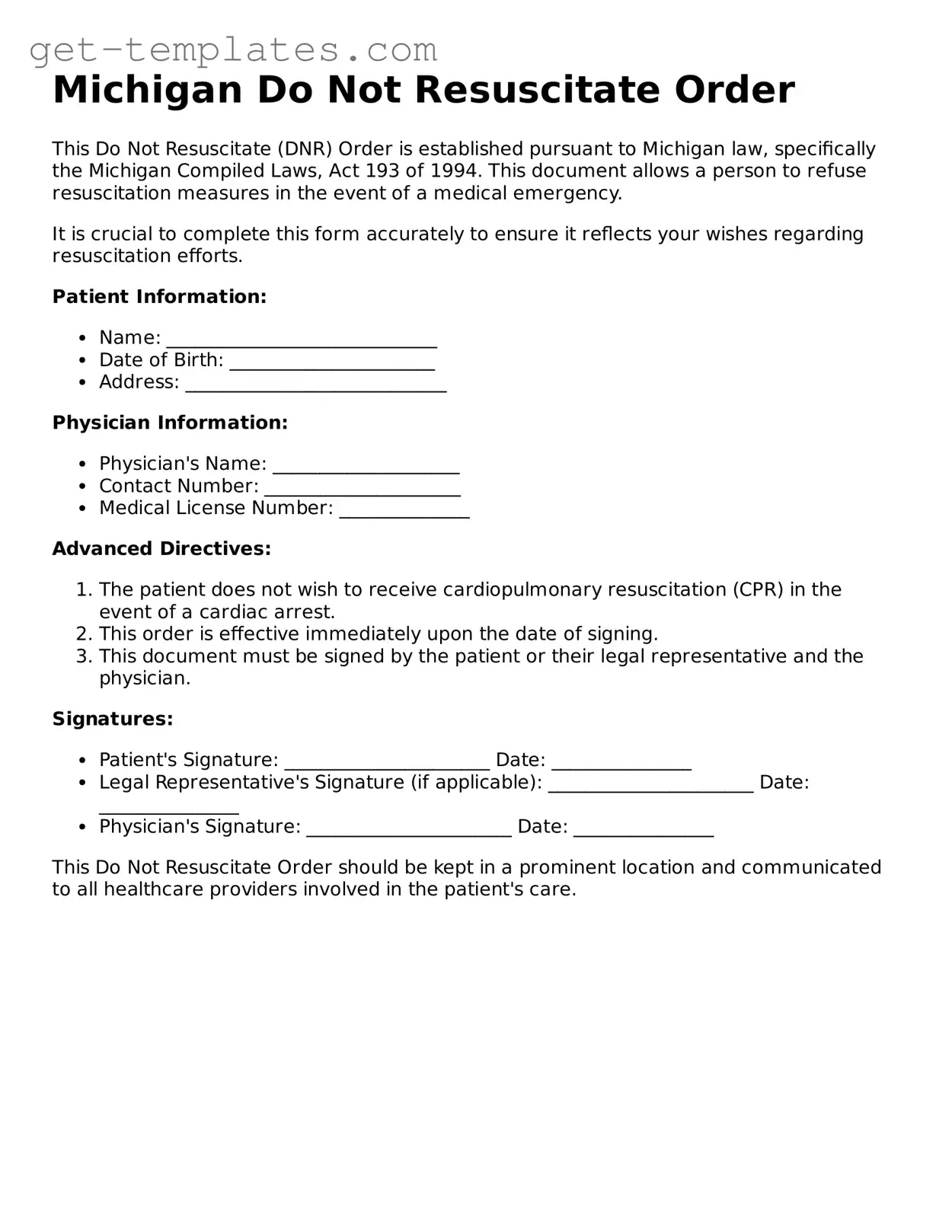Attorney-Approved Do Not Resuscitate Order Document for Michigan
A Michigan Do Not Resuscitate Order form is a legal document that allows individuals to express their wishes regarding resuscitation efforts in the event of a medical emergency. This form is particularly important for those with serious health conditions who wish to avoid aggressive life-saving measures. Understanding how to properly complete and utilize this form can ensure that a person's healthcare preferences are respected during critical moments.
Get Document Online

Attorney-Approved Do Not Resuscitate Order Document for Michigan
Get Document Online
You’re halfway through — finish the form
Finish Do Not Resuscitate Order online — edit, save, download made easy.
Get Document Online
or
⇓ PDF Form
